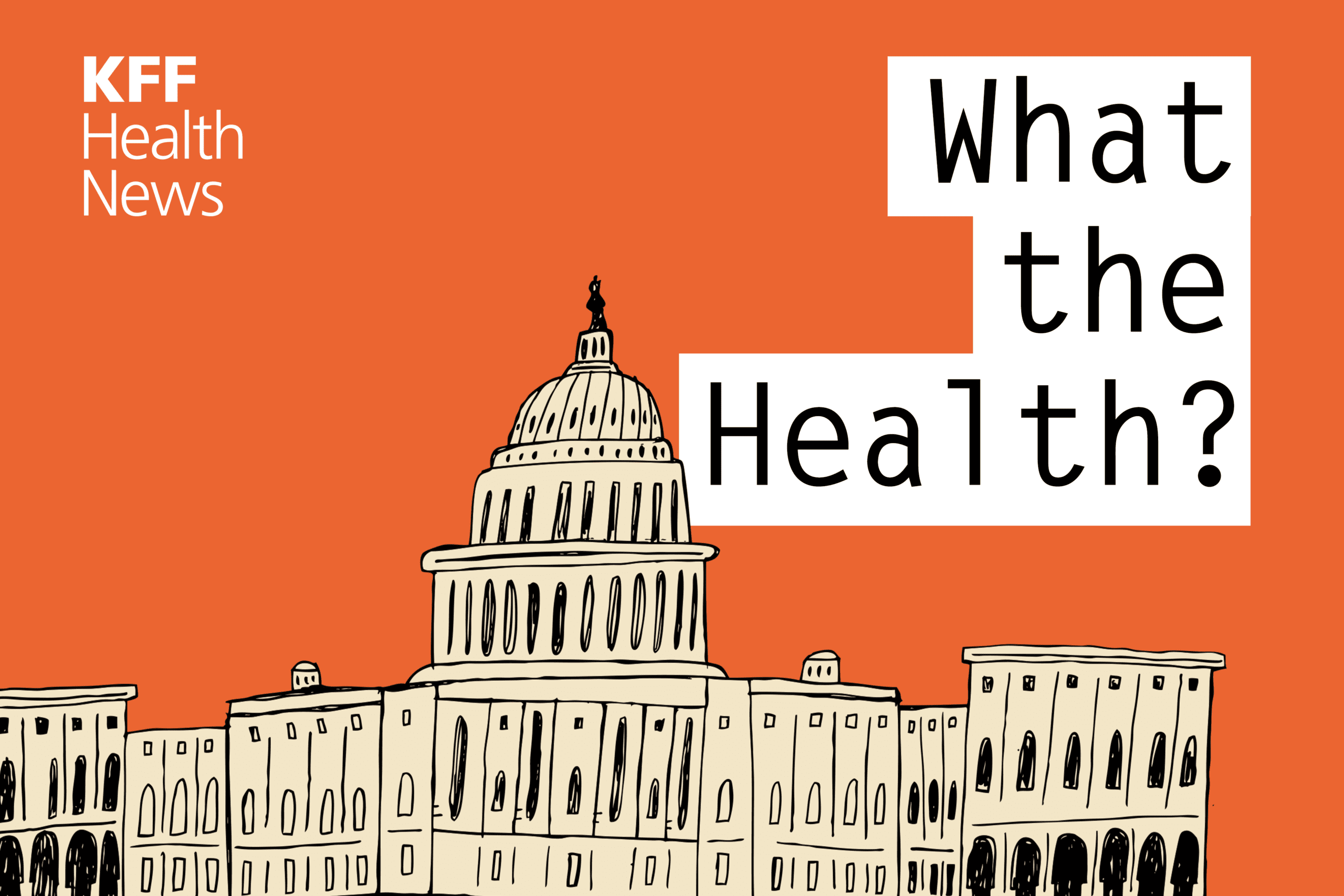The Host
The general election campaign for president is (unofficially) on, as President Joe Biden and former President Donald Trump have each apparently secured enough delegates to become his respective party’s nominee. And health care is turning out to be an unexpectedly front-and-center campaign issue, as Trump in recent weeks has suggested he may be interested in cutting Medicare and taking another swing at repealing and replacing the Affordable Care Act.
Meanwhile, the February cyberattack of Change Healthcare, a subsidiary of insurance giant UnitedHealth Group, continues to roil the health industry, as thousands of hospitals, doctors, nursing homes, and other providers are unable to process claims and get paid.
This week’s panelists are Julie Rovner of KFF Health News, Anna Edney of Bloomberg News, Joanne Kenen of Johns Hopkins University and Politico Magazine, and Margot Sanger-Katz of The New York Times.
Among the takeaways from this week’s episode:
It is unclear exactly what Trump meant in his recent remarks about possible cuts to Medicare and Social Security, though his comments provided an opening for Biden to pounce. By running as the candidate who would protect entitlements, Biden could position himself well, particularly with older voters, as the general election begins.
Health care is shaping up to be the sleeper issue in this election, with high stakes for coverage. The Biden administration’s expanded subsidies for ACA plans are scheduled to expire at the end of next year, and the president’s latest budget request highlights his interest in expanding coverage, especially for postpartum women and for children. Plus, Republicans are eyeing what changes they could make should Trump reclaim the presidency.
Meanwhile, Republicans are grappling with an internal party divide over access to in vitro fertilization, and Trump’s mixed messaging on abortion may not be helping him with his base. Could a running mate with more moderate perspectives help soften his image with voters who oppose abortion bans?
A federal appeals court ruled that a Texas law requiring teenagers to obtain parental consent for birth control outweighs federal rules allowing teens to access prescription contraceptives confidentially. But concerns that if the U.S. Supreme Court heard the case a conservative-majority ruling would broaden the law’s impact to other states may dampen the chances of further appeals, leaving the law in effect. Also, the federal courts are making it harder to file cases in jurisdictions with f …
Article Attribution | Read More at Article Source
The Host
The general election campaign for president is (unofficially) on, as President Joe Biden and former President Donald Trump have each apparently secured enough delegates to become his respective party’s nominee. And health care is turning out to be an unexpectedly front-and-center campaign issue, as Trump in recent weeks has suggested he may be interested in cutting Medicare and taking another swing at repealing and replacing the Affordable Care Act.
Meanwhile, the February cyberattack of Change Healthcare, a subsidiary of insurance giant UnitedHealth Group, continues to roil the health industry, as thousands of hospitals, doctors, nursing homes, and other providers are unable to process claims and get paid.
This week’s panelists are Julie Rovner of KFF Health News, Anna Edney of Bloomberg News, Joanne Kenen of Johns Hopkins University and Politico Magazine, and Margot Sanger-Katz of The New York Times.
Among the takeaways from this week’s episode:
It is unclear exactly what Trump meant in his recent remarks about possible cuts to Medicare and Social Security, though his comments provided an opening for Biden to pounce. By running as the candidate who would protect entitlements, Biden could position himself well, particularly with older voters, as the general election begins.
Health care is shaping up to be the sleeper issue in this election, with high stakes for coverage. The Biden administration’s expanded subsidies for ACA plans are scheduled to expire at the end of next year, and the president’s latest budget request highlights his interest in expanding coverage, especially for postpartum women and for children. Plus, Republicans are eyeing what changes they could make should Trump reclaim the presidency.
Meanwhile, Republicans are grappling with an internal party divide over access to in vitro fertilization, and Trump’s mixed messaging on abortion may not be helping him with his base. Could a running mate with more moderate perspectives help soften his image with voters who oppose abortion bans?
A federal appeals court ruled that a Texas law requiring teenagers to obtain parental consent for birth control outweighs federal rules allowing teens to access prescription contraceptives confidentially. But concerns that if the U.S. Supreme Court heard the case a conservative-majority ruling would broaden the law’s impact to other states may dampen the chances of further appeals, leaving the law in effect. Also, the federal courts are making it harder to file cases in jurisdictions with f …nnDiscussion:nn” ai_name=”RocketNews AI: ” start_sentence=”Can I tell you more about this article?” text_input_placeholder=”Type ‘Yes'”]

